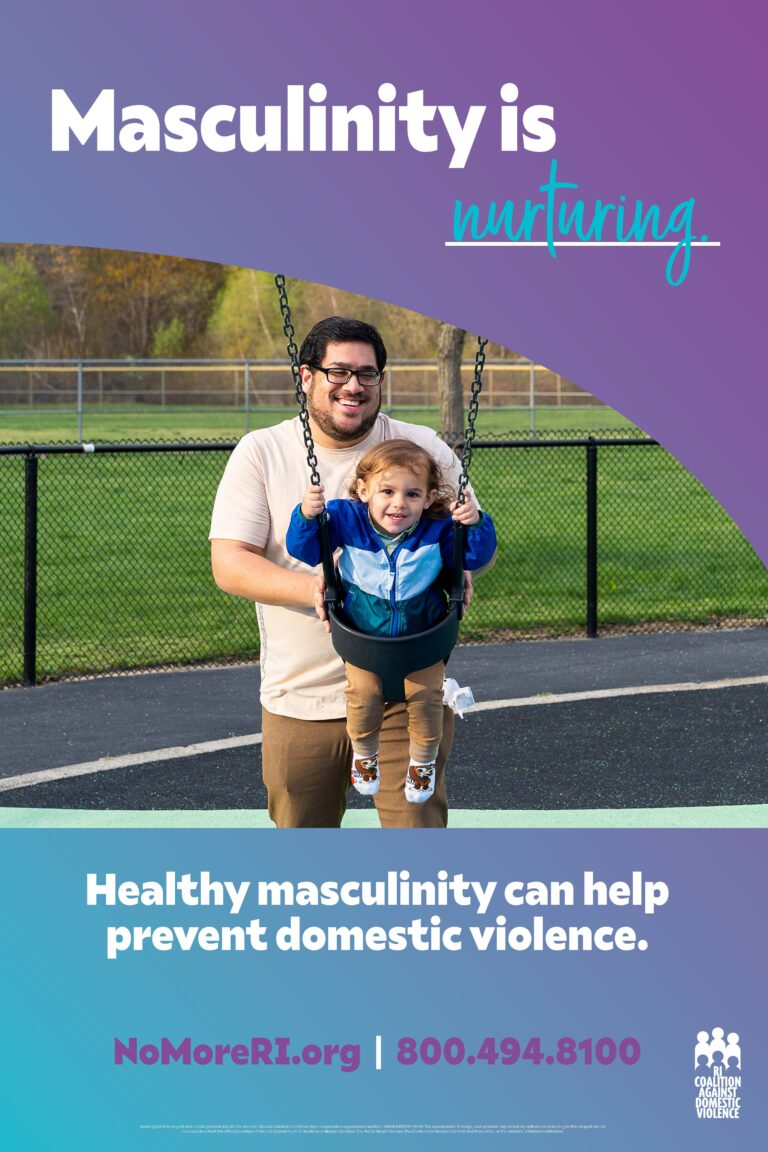Ten Men
Engaging Men as Allies
Address the Root Causes of Violence
Create Supportive,
Safe Environments
Ten Men Cohort 2024-2025!
We are so excited to invite folks to apply for the 2024 – 2025 Ten Men cohort! Ten Men offers a collective space for men and those socialized into or identifying with masculinity to learn together, reflecting on our relationship to gender and gender-based violence and get involved in the movement to end domestic violence. Learn more at our Ten Men one-pager.
Please email Devon Pinkus with any additional questions at devon@ricadv.org. To apply for the 2024 – 2025 Ten Men cohort: CLICK HERE
Listen to the Ten Men public awareness radio spot featuring information about healthy masculinity HERE.
Celebrating 10 Years of Ten Men
By modeling respectful relationships and being a voice for equality, men can help change the culture that allows domestic abuse and other forms of violence.
- Approach violence against women as an issue that involves men of all ages and all socioeconomic, racial, and ethnic backgrounds. View men not as violent perpetrators but as empowered bystanders who can confront abusive peers.
- If a friend, relative, classmate, or teammate is abusing his female partner, or is disrespectful or abusive toward girls and women in general, don’t look the other way. If you feel comfortable doing so, try talking to him about it. Urge him to seek help. Consult a friend, parent, teacher, or counselor for help. Don’t remain silent.
- Have the courage to look inward. Question your own attitudes. Don’t be defensive when something you do or say ends up hurting someone else. Try hard to understand how your own attitudes and actions might perpetuate sexism and violence; then work toward changing them.
- If you suspect that a woman close to you is being abused, ask if you can help.
- If you are emotionally, psychologically, physically, or sexually abusive to women, or have been in the past, seek professional help.
- Be an ally to women who are working to end gender-based violence. Support the work of college and community women’s centers. Attend related events. Help raise funds for victim services.
- Recognize and speak out against homophobia and gay-bashing. Discrimination and violence against those who identify as LGBTQ is wrong, and this abuse has direct links to sexism and violence against women.
- Attend programs, take courses, watch films, and read articles and books about multicultural masculinities, gender inequality, and the root causes of gender violence. Educate yourself and others about how larger social forces affect the conflicts between individual men and women.
- Don’t fund sexism. Refuse to purchase any magazine, rent any video, subscribe to any website, or buy any music that portrays girls or women in a sexually degrading or abusive manner. Protest sexism in the media.
- Mentor and teach young boys about how to be men in ways that don’t involve degrading or abusing girls and women. Volunteer to work with gender violence prevention programs, including anti-sexist men’s programs. Lead by example.
(Adapted from a resource by Jackson Katz, one of America’s leading anti-sexist male activists and co-founder of Mentors In Violence Prevention (MVP).)
Helpline Available 24/7
The confidential statewide Helpline can be reached by calling 1-800-494-8100 or using the online chat here. The Helpline is for all victims of violent crime, including domestic and dating abuse, and those looking for more information to help a victim of violence.
